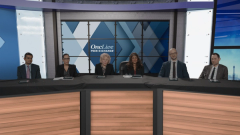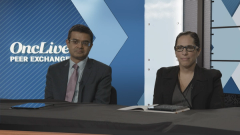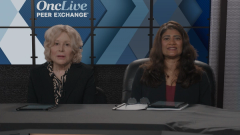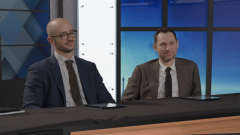
Unmet Needs and Future Directions in Care in CLL
Closing out their discussion on novel treatment strategies in CLL, expert hematologist-oncologists address unmet needs and future directions in care.
Episodes in this series

Transcript:
Sonali M. Smith, MD: I want to thank this panel. We have learned so much. I want to thank you for this rich and informative discussion. Before we conclude, I’d like to get some final thoughts on unmet needs and future perspectives in CLL [chronic lymphocytic leukemia] from each of you, as well as some practice pearls you wish to share with your colleagues. I’m going to go kind of rapid-fire, and I’m going to go in order, if that’s OK. I’m going to start with Dr Sameer Parikh.
Sameer A. Parikh, MD: I think in the frontline setting, fixed-duration combination therapy is the best way to treat, with the deep responses and the time off treatment as we discussed. I think as our patients will live longer and unfortunately, will experience disease progression, I’m glad to see all the novel clinical trials that are being investigated right now.
Nicole Lamanna, MD: I think unmet needs still will be the patient population with Richter [transformation]. Also obviously, the patients who are failing both covalent, noncovalent, and venetoclax [therapies]. Those are clearly unmet needs. I think we’ve been blessed with these agents, and we just need to continue to figure out how best to use them and which patients might see more benefit from doublets, triplets, and time-limited ones. I still think some patients could stay on monotherapy.
Sonali M. Smith, MD: Susan?
Susan M. O’Brien, MD: It’s interesting, we used to define unmet medical need by the disease characteristics, particularly 17p or TP53, and Nicole’s right about the double refractory, but most of those patients nowadays, they are also refractory to chemotherapy. Pure double refractory is going to be an up-and-coming population, but there aren’t a lot of them. Where I would say a big unmet medical need is with younger patients with CLL. Because if I have a patient in their 70s, unless they have horrible adverse effects to everything, I probably can keep them alive with all of the drugs I have now to get to a lifespan where they then would die of something else. But younger patients with CLL, I don’t think I can say that, not yet.
Ryan W. Jacobs, MD: Along the lines of the double refractory discussion, we’ve talked about maybe more targets, but can CAR [chimeric antigen receptor] T-cell [therapy] ultimately have some curative potential, [like] where we’ve seen allogeneic transplant have some curative potential in the past? I think that’s a big unmet need because so many of our patients with CLL would potentially need something like an allotransplant or are too advanced in age or have comorbidities. You mentioned a quick clinical pearl. I would say for my colleagues, don’t be worried about using growth factor, particularly within the first few months with venetoclax or even the BTK [Bruton tyrosine kinase] inhibitors. You don’t need to interrupt therapy always, it’s OK to coadminister. I hear confusion surrounding that in the community a lot.
John N. Allan, MD: I echo everyone’s statements on the unmet needs. I would state some practical things that we need to figure out still. One is the role of MRD [minimal residual disease] in CLL, and can that affect how we care for patients and incorporate treatment? No. 2 is the role of antibodies in doublet therapies and oral doublets.
Sonali M. Smith, MD: Thank you once again to our fantastic panel, and to our viewing audience, thank you for joining us. We hope you found this OncLive Peer Exchange® discussion to be useful and valuable to the treatment of your patients with CLL. Thank you.
Transcript edited for clarity.








































